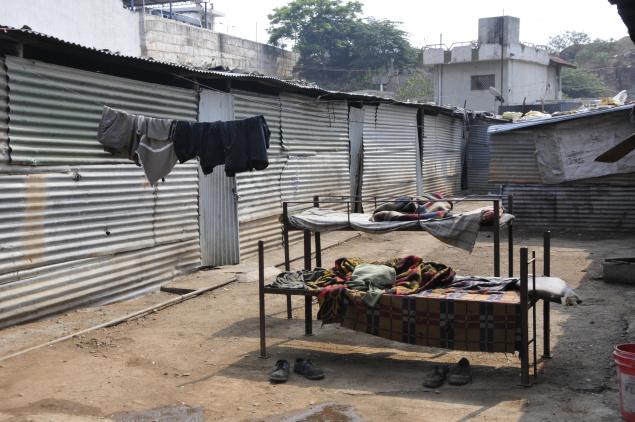(DEEPA KURUP)
Inspection reports large-scale violations.
Bangalore: For hundreds of contract workers employed by establishments as part of the construction of the multi-crore Namma Metro project, every workday is a challenge. Barring payment of their minimum wages, a majority of employers offer nothing in the way of basic workplace facilities — be it drinking water, toilets, accommodation, canteens, first aid or medical help — said a detailed inspection report by labour officials.
The inspection, carried out by officials of the Labour Department, found that none of the 24 contractor establishments, carrying out various construction activities for Bangalore Metro Rail Corporation Ltd. (BMRCL), has complied with labour laws.
With the exception of three contractors who have provided make-shift accommodation, almost all are found violating two key labour legislations: the Contract Labour (Regulation and Abolition) Act and the Building and other Construction Workers Act.
Inter-State migrants
Most significantly, no establishment holds a licence under the Inter-State Migrant Workers (Regulation of Employment) Act (ISMW), a mandatory requirement for those employing migrant workers. The report submits that barring around six worksites, migrant labour was employed by all contractors. However, not one of them had a licence or fulfilled any of the mandated requirements, such as providing accommodation, canteens, crèches and paying displacement/journey allowances routinely.
The inspection found that the total number of contract hires on this project is around 3,745 men and 18 women.
Basic amenities lacking
Only contractors employing over 200 workers have provided a basic on-site toilet and drinking water facilities; none of them has maintained work registers or wage books as mandated under multiple labour laws that cover such employment, the report said. On-site facilities, in the few cases where they existed, were ‘not maintained’ or ‘poorly maintained’. In all cases, minimum wage norms were followed, though one contractor was found not paying overtime charges, the report said.
One company, which deploys signalling and communication systems, was found operating with an expired Contract Labour licence, while another was found operating without the mandatory registration certificates.
PIL plea
The report, a copy of which is with The Hindu, details the findings of inspections conducted during March 18 to 23 following a High Court directive in a PIL petition filed by Samuel Sathyaseelan, a social worker, highlighting the lack of basic amenities and poor living conditions of contract hires working on the city’s most prestigious infrastructure project. It was submitted to the court on April 2.
Frequently-used loophole
When contacted, an official working for a major contractor, conceded that migrant labourers were employed in large numbers. However, he said many “migrants had come here on their own”, and therefore were not the job contractor’s liability. A State labour official told The Hindu that this was a “frequently-used loophole”. “Under the ISMW, the contractor is only liable if it can be proved that the recruitment happened outside the State. Most contractors will claim that their employees had come here in search of work, and were hired independently. The truth is that they are hired in bulk, but they use the loophole to dodge liability.”
BMRCL’s onus
The report made it clear that almost all contractors have failed to provide welfare measures mandated by the Contract Labour (Regulation and Abolition) Act 1970. But, section 20 of the Act also lays down the liability of the principal employer when contractors fail to provide these facilities.
It adds that the principal employer, the BMRCL in this case, should then provide the amenities mandated and recover the costs from the contractors


